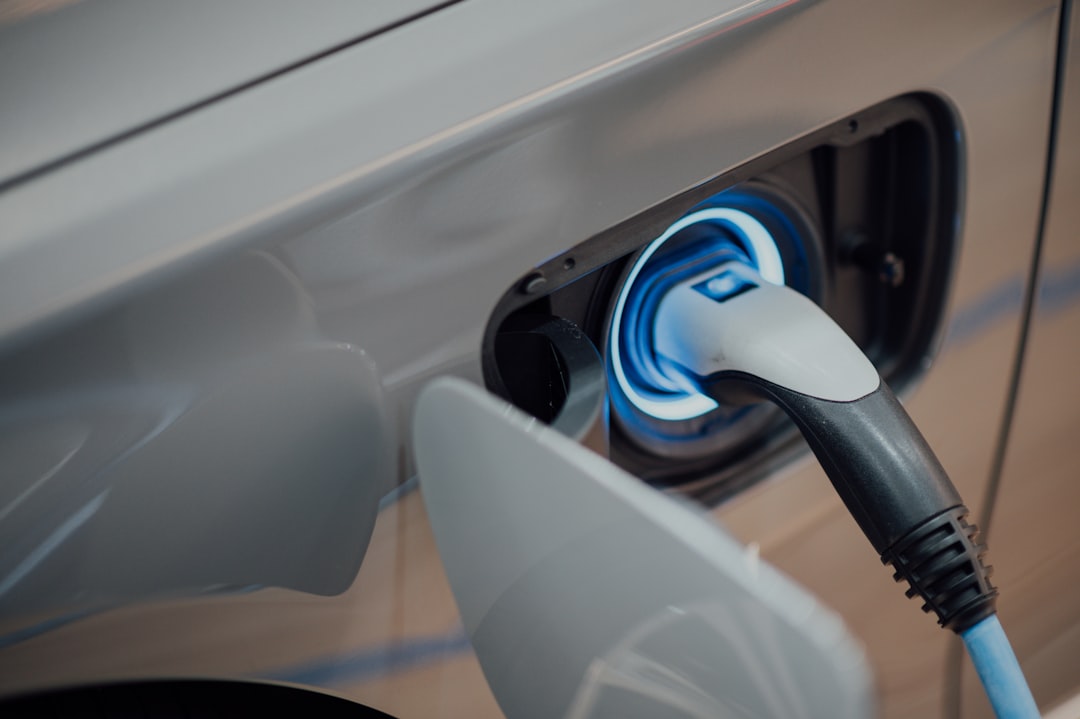 Photo from Unsplash
Photo from Unsplash
Originally Posted On: https://jc2electric.com/common-myths-about-ev-charger-installation-for-commercial-properties/
Common Myths About EV Charger Installation for Commercial Properties
Overview
When it comes to EV chargers, the benefits outweigh the drawbacks—and we’re here to prove it. In this blog post, JC2 Lighting and Electric debunks the most common myths about EV charger installation for commercial properties, clarifying the benefits, feasibility, and costs associated with the process. We’ll also provide you with expert insights on how your business can move forward with this sustainable and forward-thinking initiative.
Highlights
- Installation is too expensive
- Major electrical overhaul is needed
- Installation takes too long
- It’s only worth it for large corporations or high-traffic areas
- There’s no return on investment
- Chargers are too complicated
- There are too many compatibility issues
Introduction
As electric vehicles become more common on the roads, the demand for EV chargers is rapidly increasing. For businesses looking to meet the needs of their employees, customers, or tenants, installing EV chargers is becoming a wise and necessary investment.
However, many businesses are still hesitant to install EV charging stations due to misconceptions and myths surrounding the process.
JC2 Lighting and Electric will go over common myths and dispel them.
Myth 1: EV Charger Installation Is Too Expensive
One of the most common myths surrounding EV charger installation is that it’s prohibitively expensive for businesses. While it’s true that the initial costs of installation can vary, the assumption that it’s out of reach for most businesses is far from accurate. The cost of installing EV chargers depends on several factors.
Here’s a look at how costs are really broken down:
- The number of chargers
- The type of chargers—whether they’re level 1, level 2, or DC fast chargers
- The location of installation
- Whether any electrical system upgrades are necessary
While level 2 chargers are the most common for commercial properties, their installation costs are much more affordable than many realize.
DC fast chargers, on the other hand, can be more expensive to install, but they provide much quicker charging times, making them ideal for high-traffic areas and larger commercial properties.
Grants and Rebates Can Lower Your Costs
Many businesses qualify for incentives, grants, and rebates to help offset the initial costs of installation. Your Colorado business can take advantage of grants and rebates to help reduce the cost of installing electric vehicle chargers.
One key program is Charge Ahead Colorado, which offers grants to support the installation of EV charging stations for businesses, multifamily housing, and public entities.
Myth 2: Installing EV Chargers Requires Major Electrical Overhaul
Another misconception is that installing EV chargers requires an expensive and time-consuming overhaul of a commercial property’s entire electrical system.
In reality, while some properties may require minor electrical upgrades to accommodate the additional load, the process is typically much simpler than people think.
Electrical Upgrades: What’s Really Necessary?
Most commercial properties can handle the addition of a few EV chargers without major upgrades. However, depending on the number of chargers and the existing electrical system, some upgrades may be necessary, such as installing additional circuit breakers or dedicated circuits for each charger. This is particularly true for high-demand locations with a large number of charging stations.
A commercial electrician can perform a site assessment to determine the current system’s capacity and recommend any necessary changes. In many cases, the required upgrades are relatively minor, and the cost is far outweighed by the benefits of having EV chargers installed. With proper planning, electrical upgrades can be seamlessly integrated into the installation process without significant disruptions.
Myth 3: EV Charger Installation Takes Too Long
Many business owners worry that the installation of EV chargers will cause significant disruptions to their daily operations. Whether it’s a retail business, office complex, or multi-tenant property, nobody wants their operations to be interrupted for extended periods.
A Streamlined Installation Process
The truth is, the installation process is usually much faster and more straightforward than anticipated. Level 2 chargers typically take 1 to 2 days to install, including all electrical work and setup.
For larger commercial properties or facilities with more chargers, the installation may take a few days, but it’s still relatively quick and efficient when compared to other types of construction or infrastructure projects.
To minimize disruptions, you can schedule the installation during off-peak hours or over weekends, ensuring that normal operations can continue with minimal interference.
Parking Requirements for EV Chargers
When installing EV chargers for commercial properties, it’s important to be aware of certain parking requirements that may apply to ensure accessibility and compliance with local regulations. These requirements can vary depending on the number of charging stations, the layout of your property, and whether you’re offering public or private access to the chargers.
Keep in mind that many jurisdictions require that the spaces where EV chargers are installed be specifically designated for electric vehicle parking. These spots should be clearly marked with signs and have adequate space for easy access to the charging stations.
Our professional installers can provide guidance on optimal charger placement to maximize accessibility and convenience for users.
Myth 4: EV Chargers Are Only for Large Corporations or High-Traffic Areas
Some business owners believe that installing EV chargers is only worthwhile for large corporations or areas with a high volume of electric vehicle traffic. However, this myth overlooks the growing trend of EV adoption across all sectors and communities.
EV Adoption Is on the Rise Everywhere
EV sales in the United States are forecasted to continue growing at an exponential rate. This means that businesses of all sizes, from small retail stores to office buildings and industrial facilities, should be preparing for the future by offering EV charging options.
Offering EV chargers at your business demonstrates a commitment to sustainability. It also attracts a new and growing customer base. With more people driving EVs, your business can gain a competitive edge by becoming an early adopter of EV infrastructure. Whether you’re located in a city center or a more suburban area, having charging stations is a great way to stay ahead of the curve.
Myth 5: EV Charger Installation Will Not Bring Any Return on Investment
While the initial costs may seem daunting, the ROI on EV charger installation is often higher than anticipated.
Providing EV charging stations can increase the marketability of your property. For example, office buildings and retail spaces that offer EV chargers may find that they become more attractive to environmentally conscious tenants, employees, and customers. This can lead to higher occupancy rates and more foot traffic, which can translate into increased revenue.
Cost Savings and Sustainability
As a business, installing EV chargers can help align your brand with sustainability goals. By offering EV chargers, you can reduce your company’s carbon footprint, which is especially beneficial if you’re aiming for green building certifications such as LEED. Having a positive environmental impact can also be a key selling point for customers who prioritize sustainability.
Myth 6: EV Charging Stations Are Complicated To Use and Maintain
Contrary to popular belief, modern EV chargers are designed to be user-friendly and low-maintenance. Many commercial EV chargers come with smart features that make them easy to use. Some chargers include mobile apps that allow users to start and stop charging, check the status of the charger, and even pay for the service. The convenience of these features makes EV chargers incredibly accessible to both your customers and employees alike.
What’s more, most EV chargers are designed for minimal maintenance, with some models requiring little more than regular inspections. If any issues arise, manufacturers typically offer comprehensive customer support and warranties to ensure that businesses can get their chargers up and running quickly.
Myth 7: EV Chargers Are Not Compatible With All Electric Vehicle Models
Another common misconception is that EV chargers are not universally compatible with all electric vehicles. While this may have been true in the early days of electric cars, it’s no longer a significant issue today.
Universal Charging Compatibility
Today’s EV chargers are generally compatible with all major electric vehicle models, including those from:
- Tesla
- Nissan
- Chevrolet
- BMW
- Hyundai
- Kia
- Volkswagen
While Tesla vehicles require an adapter to use non-Tesla chargers, this is a minor issue that doesn’t affect the vast majority of EV drivers. Charging infrastructure has become more standardized, ensuring that your commercial charging stations can accommodate a wide range of vehicles.
Preparing Your Business for the Future of EV Charging
The demand for electric vehicles is growing rapidly, and offering EV chargers at your commercial property is a smart investment that can provide numerous benefits. By dispelling these common myths about EV charger installation, we hope to have shown that installing EV chargers is feasible, affordable, and beneficial for businesses of all sizes.
If you’re considering EV charger installation, it’s essential to consult with our licensed commercial electricians. We can assess your electrical system, provide expert recommendations, and ensure that the installation process goes smoothly.
The future of transportation is electric, and now is the time to prepare your business to meet the demands of today’s environmentally conscious consumers.
Stay ahead of the curve. Contact us at (720) 798-1100 now to learn more.





